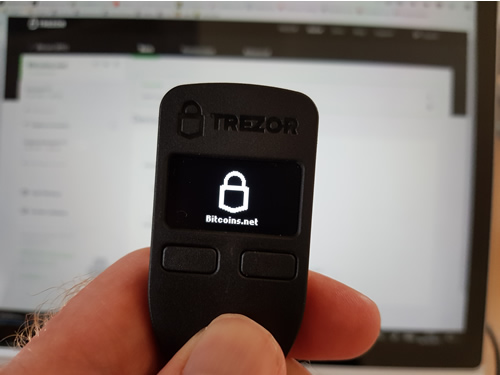Hardware Wallets

Hardware wallets are seen as having the best combination of security and practicality of all the wallets. They are a way of cold-storing your bitcoins without many of the environmental problems associated with paper storage.
These hardware wallets are (usually) small hardware devices that plug into your computer when you need to use them. They hold your private key and work in conjunction with a standard connected-wallet that holds your public key.
Some hardware wallets will plug directly into your computer whilst others will merely give you a unique code to enter into your computer before completing your transaction (some regular banks use similar security devices). Normally these devices will be small enough to carry around in your pocket (like a true wallet) although there are some options that take up a little more space.
The biggest benefit of a hardware wallet is the security. Unlike your computer, they are immune to viruses. There is no chance of them being corrupted before you begin to use them, as is very possible when dealing with desktop or online wallets. Your private key is never stored in plain text, which makes theft much less likely.
Overall, they are much more secure, but that comes with a trade-off in terms of convenience. They require more expertise to manage and set up, and you will need to jump through extra hoops every time you make a transaction.
Choosing a Hardware Wallet
At the bottom of this page you will find a link to comprehensive reviews of several hardware wallets. But if you are short on time, these are the main three to consider...
The TREZOR is the oldest hardware wallet, and as such, has advanced quite a bit in terms of features. The design is pleasing to look at, but more importantly, it allows for the storage of other cryptocurrencies like Ethereum, ZCash, and Dash. Combine this with a solid user interface, and you can see why it is the most recommended of all the hardware wallets. You do pay a higher price for this wallet, but with the reputation and quality that comes with that, this can be justified.
The Ledger Nano S has a lot of the same features as TREZOR, and lags only in terms of reputation. TREZOR's longer history has earned it more supporters who haven't necessarily had a chance to try the Nano S yet. The Nano S supports several altcoins, is well-designed, and is reasonably priced.
KeepKey went for a bit of a different design, and ends up occupying a different space because of it. The wallet is larger and less portable than the other two wallets, but has a sleeker design. This is a newer wallet so reputational factors have not yet been fully established.
Between these three wallets, there are not a lot of differences besides the reputation of the company and the slight variations in price. As it is possible you could be storing a significant amount of Bitcoin in your hardware wallet, there's no reason to cut costs if you think that will negatively affect your security in the long run. The three wallets presented above aren't the only wallets in the market, but they are considered amongst the three most trusted options.

